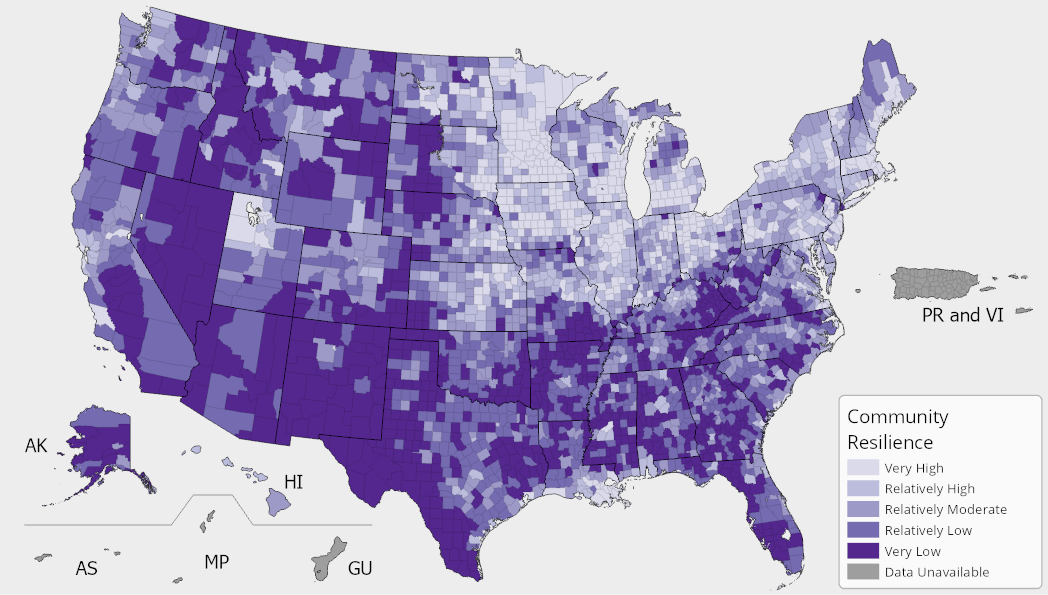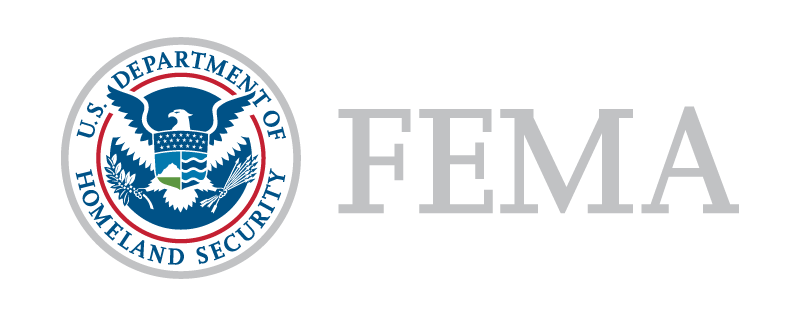Community Resilience
Community resilience is the ability of a community to prepare for anticipated natural hazards, adapt to changing conditions, and withstand and recover rapidly from disruptions.
As a consequence reduction risk component of the National Risk Index, a Community Resilience score and rating represent the relative level of a community’s resilience compared to all other communities at the same level. A community’s Community Resilience score measures its national rank and is inversely proportional to a community’s risk. A higher Community Resilience score results in a lower Risk Index score.
Community Resilience scores and ratings are available for communities in all 50 states and the District of Columbia. Community Resilience scores and ratings are not available for American Samoa, Commonwealth of the Northern Mariana Islands, Guam, Puerto Rico, and the U.S. Virgin Islands.

Source Data
Source data for U.S. communities is provided by University of South Carolina's Hazards and Vulnerability Research Institute (HVRI)’s Baseline Resilience Indicators for Communities (HVRI BRIC) using updated Census data from the American Community Survey 2020.
For more information on the creation of the HVRI BRIC, please refer to HVRI's resources or the paper published by Cutter, Ash, and Emrich, 2014.
For comprehensive details about Community Resilience in the Risk Index, see the National Risk Index Technical Documentation.


